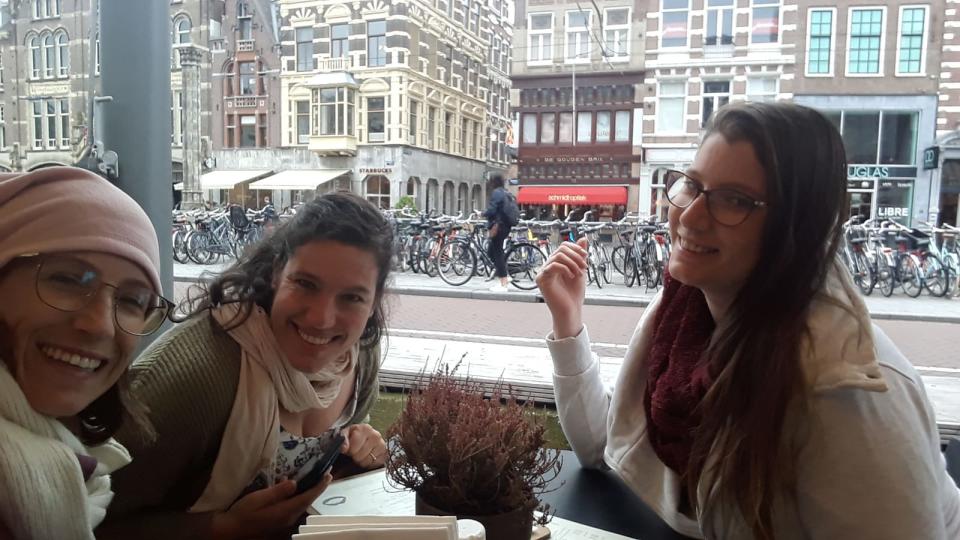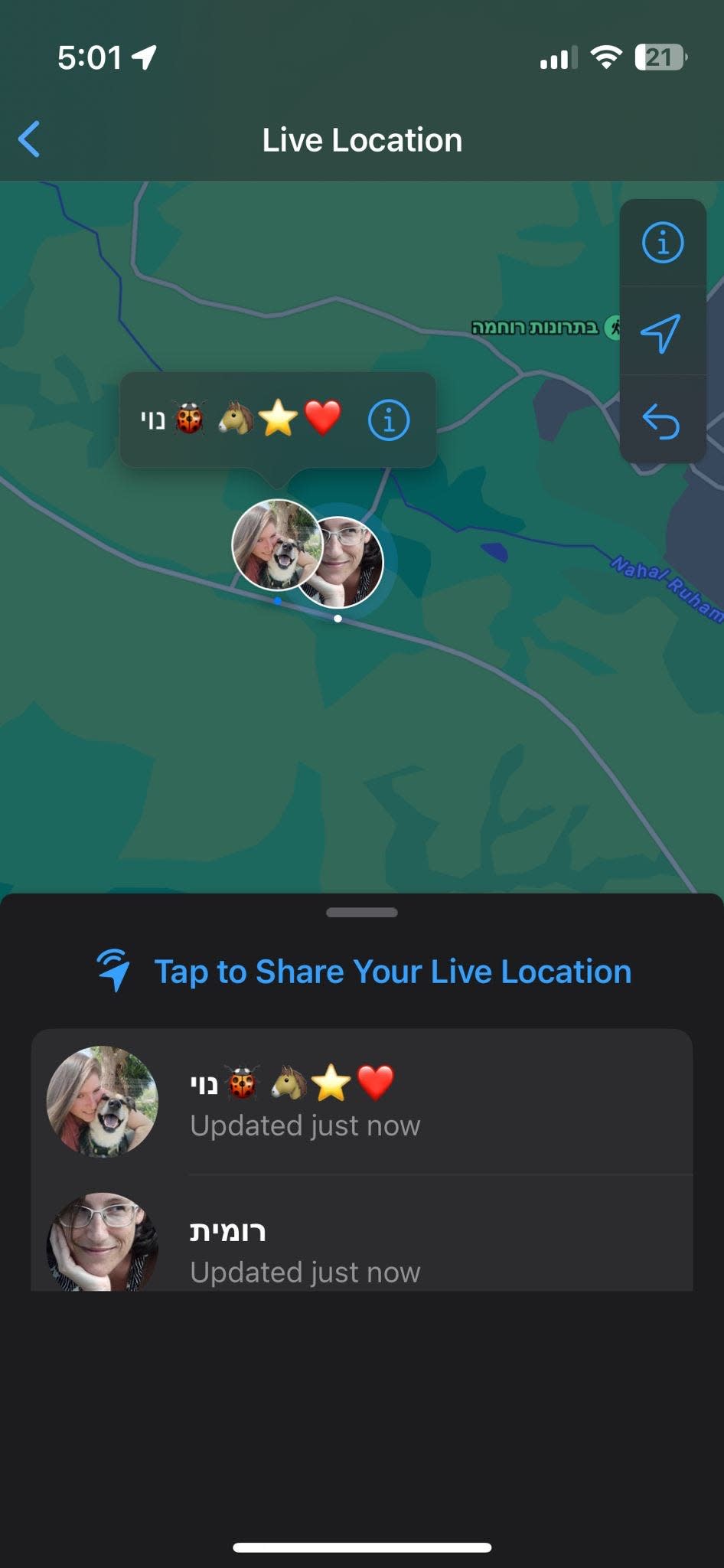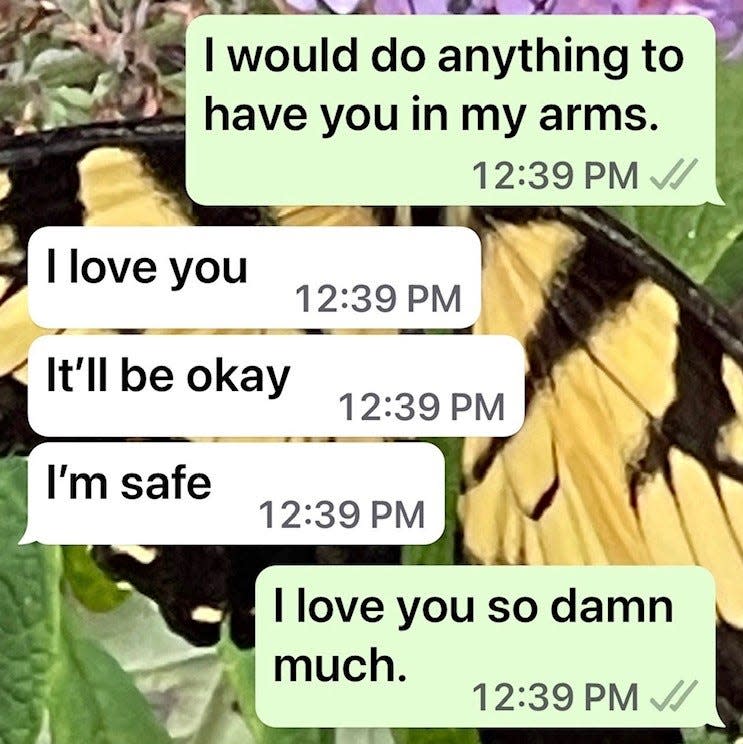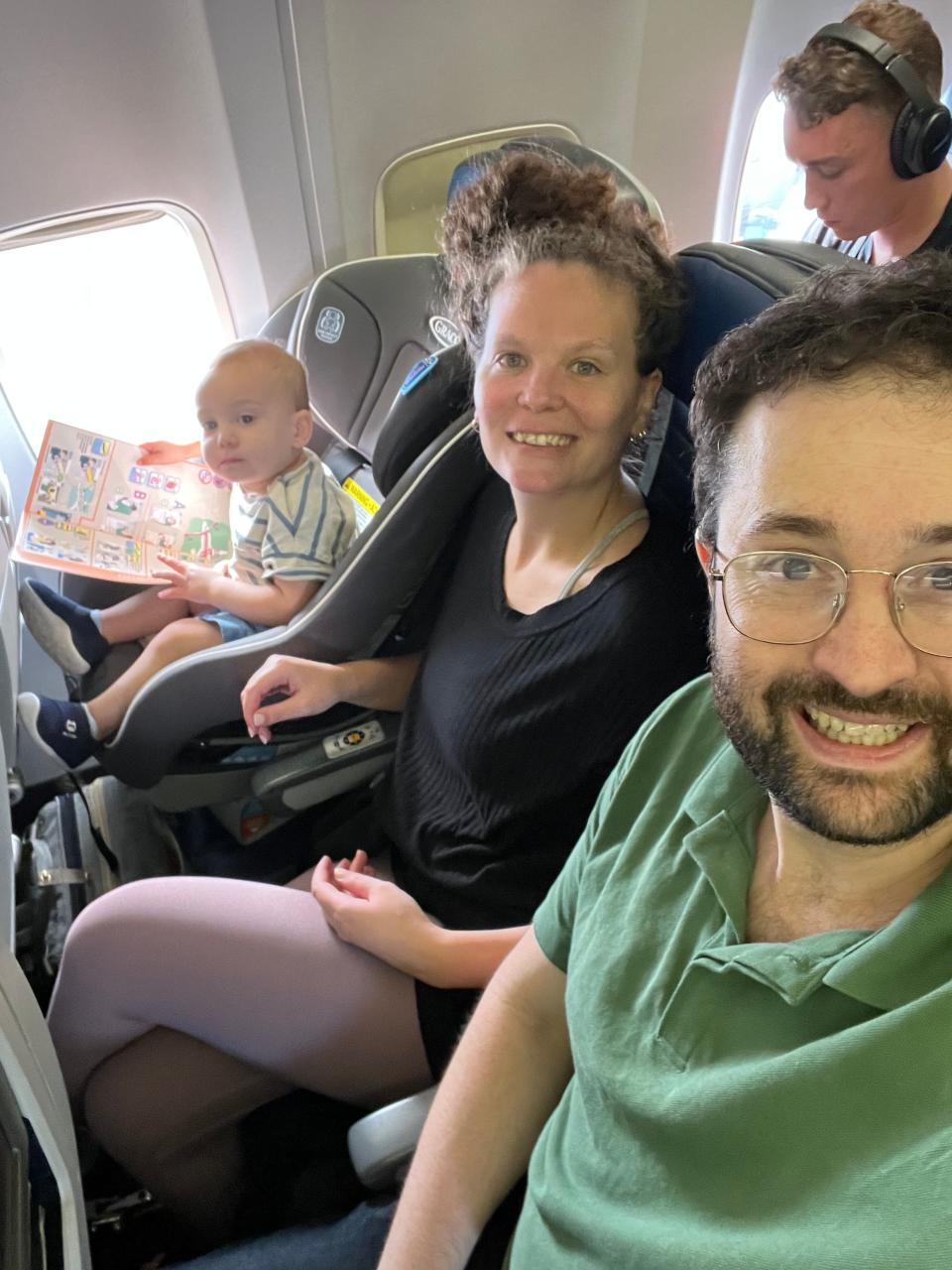Apps like WhatsApp has become a lifeline for Americans worried about friends, family in Israel
Bar Pereg spent the early hours of the morning Saturday glued to her phone, tracking her sisters’ location as they fled from the rockets raining down on Israel.
The 37-year-old New Yorker initially thought little of the attack. With seven decades of war and conflict between Palestinians and Israelis, rockets aren’t uncommon in the region. But Pereg soon learned from her sisters’ WhatsApp messages that this time, things were different.
The two sisters decided to risk car rides to a safer location, fearing the situation would take a turn for the worse in their kibbutz near Gaza.
“I asked them to share their location so I could track them, and I just sat there and watched,” Pereg said, noting that they took off around 4:30 a.m. EDT. Once they reached a highway, Pereg alternated 20-minute phone calls with each sister to make sure they were safe and didn’t fall asleep at the wheel.
“The fact that I could hear their voices, see their location, it was the difference between a complete freakout or crippling fear but with really clear hope,” Pereg said. “It made all the difference.”

People across the United States have turned to communication channels like WhatsApp to get updates from friends and family in Israel amid the war, which has so far led to more than 900 dead in Israel, upward of 680 dead in Gaza and at least 14 dead Americans. Dozens more Israelis and an unknown number of Americans have been taken hostage and are being held in locations across Gaza.
While experts warn that social media sites can be rife with disinformation, they have also become a lifeline for Americans concerned about loved ones thousands of miles away.

'The darkest, darkest days of our lives'
Linda Mildwurf, 52 of Raleigh, North Carolina, has been in constant communication with her 20-year-old daughter through WhatsApp since the conflict began.
Mildwurf’s daughter is a “lone soldier,” a designation in the Israel Defense Forces whose parents do not live in Israel. Mildwurf asked that her daughter not be named to avoid targeted attacks by Hamas militants.
When she's not checking on her daughter and sending encouraging texts, Mildwurf spends her time on WhatsApp finding solace in a lone soldiers' mothers group, where members update each other on the status of their children.
“Our job is to protect them. They’re our kids. And these are just kids, at the end of the day,” Mildwurf said. “And there's nothing that we can do. Literally, the only thing we have is to be able to talk to them through WhatsApp.”

Itzik Elyahou, 37 of California, was at a mindfulness retreat with limited internet access over the weekend and didn’t learn about the war until Sunday.
When he connected his phone to Wi-Fi, he said he discovered approximately 70 WhatsApp messages from friends and family in Israel. He raced back home after learning about the war and sorted through the news after a “really hard” two-hour drive.
“I didn’t know who was dead or kidnapped. That was super challenging,” he said, adding that his immediate family and close friends are safe. At the retreat, “I was at this peak of the universe, feeling everything is possible. We’re all one, we’re all together. Then you go back to reality.”

Boris Meyerovich, a 33-year-old Israeli living in Austin, Texas, was in Israel last week to visit friends and family. He landed in Texas with his wife and son on Friday and woke up jetlagged in the middle of the night to find notifications flooding his phone from WhatsApp, Instagram and Telegram.
“Everywhere, it was chaos. People were asking each other are you good? Are you fine?” he said.
“Like 9/11 for the U.S., that’s how it feels for me," he added. "It’s horrible. It’s the darkest, darkest days of our lives."
He keeps in contact with his mother “a few times a day” and gets updates from his friends in WhatsApp groups. While Meyerovich said his family has reported rockets flying about their house, they remain safe.
Debbie Secan, a 53-year-old Raleigh, North Carolina, resident who lived in Israel while in her 20s, has been communicating with friends through WhatsApp and Facebook Messenger since the attack started.
“I’m just grateful that I can send love,” she said. "The one thing I’m getting is that they’re all very scared and shocked.”
Israel-Hamas war: Israel, Gaza and when your social media posts hurt more than help
Disinformation spreading on social media
While social media sites have been able to help connect families amid the crisis, they have also been flooded with misinformation.
False stories have already spread on sites like Facebook and X, formerly Twitter, with users posting old videos or video game clips and passing them off as updates from the Israel-Hamas war.
“You have to be a bit more careful when you consume content,” said Dina Sadek, a Middle East research fellow at the Atlantic Council’s Digital Forensic Research Lab. “Right now, there's widespread misinformation and disinformation.”
Social media to blame?: Online hate surges after Hamas attacks Israel. Why everyone is blaming social media.
The Israel-Hamas war isn’t the first conflict where social media has been used to spread propaganda, but some experts say managing misinformation online today is harder than ever before.
Developments in artificial intelligence could influence propaganda if the Israel-Hamas war drags on, according to Claire Wardle, co-director of the Information Futures Lab at Brown University, which studies misinformation.
Wardle also noted that in just the past few months, Elon Musk's X has made it harder to recognize verified journalists and layoffs among tech companies like Google parent company Alphabet and Facebook parent company Meta have reportedly affected teams focused on internet trust and safety.
“It was always going to be a difficult situation, and then you add on the world's most complex conflict, which is Israel and Palestine and Gaza. And what we're seeing is what we would expect, but it's made so much worse on Twitter, X, in particular, because of the complete breakdown of the lack of verification processes,” Wardle said.
“I don't think the platforms are prepared,” she added.
This article originally appeared on USA TODAY: Amid Israel-Hamas war, WhatsApp helps Americans reach loved ones


